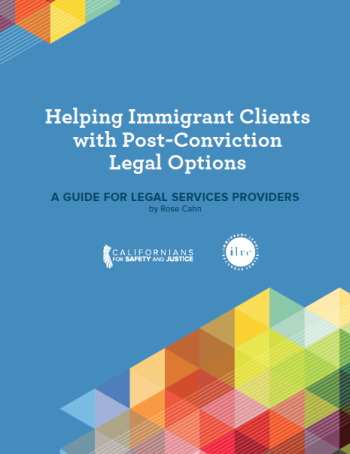
For noncitizens, even a low level offense like a shoplifting conviction can lead to mandatory deportation. However, this can be avoided when people secure post-conviction relief to erase or modify their old convictions. If the convictions are vacated, or the sentences reduced, the grounds for removal often evaporate.
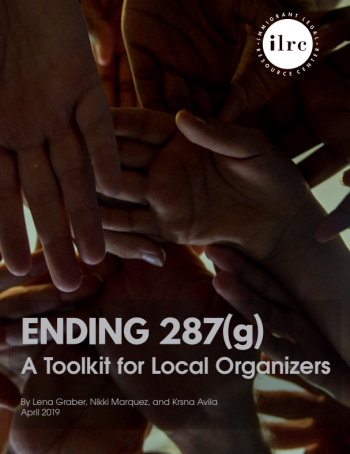
The Trump administration has vowed to increase 287(g) agreements, which deputize state and local law enforcement officers to undertake various duties of Immigration and Customs Enforcement (ICE) agents. Indeed, as of the date of this publication, 49 of the 78 total 287(g) agreements were created during this current administration, and the number will likely continue to increase. However, all of the current 287(g) agreements will expire on June 30, 2019, unless they are renewed.
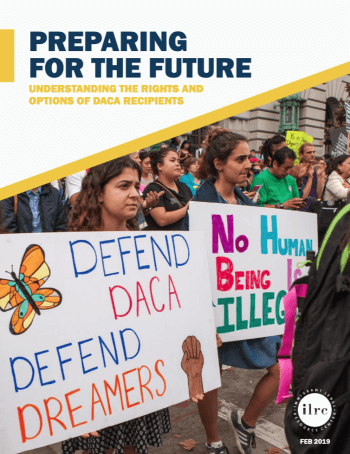
The Deferred Action for Childhood Arrivals (DACA) program has faced many threats and experienced significant changes since it began in 2012. This toolkit was created to help inform DACA recipients about their rights as well as how other community members can support DACA recipients during these challenging times.
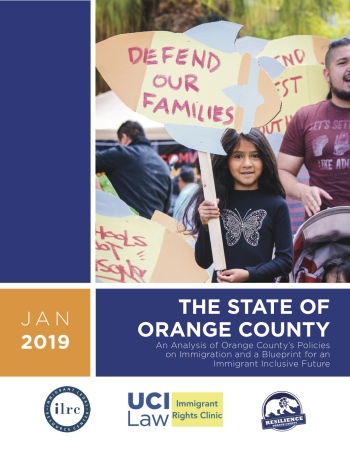
This report outlines the state of immigration enforcement in Orange County, California by providing a window into the historical and current state of Orange County’s immigration policies, their impact on local residents and the considerations and values that ought to guide a vision for a new Orange County. Specifically, the report offers a first look at data obtained through Public Records Act requests from the Orange County Sheriff’s Department and ICE. It concludes with 20 questions that ought to inform any discussion going forward about immigration policy in the sixth most populous county in the nation.
The ILRC is proud to stand with 30 of our partners in the criminal justice reform movement to release this report, Repairing the Road to Redemption in California. Our report is part of a national effort, called #TimeDone, to raise awareness of how many people are affected by the barriers associated with convictions and the extent to which they undermine, economic security, family stability, and public safety.
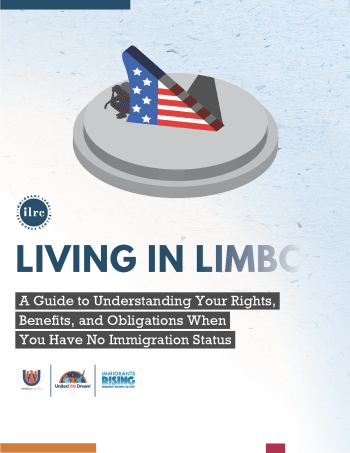
Every year, millions of people wait for Congress to advance a solution that would provide stability for undocumented persons and their families. The numbers left waiting and worrying without a pathway to citizenship, protection from deportation, or the ability to work under the Trump Administration has only increased with the limitations on the Deferred Action for Childhood Arrivals (DACA) program and the termination of Temporary Protected Status (TPS) for certain countries.
This report details findings from a national survey of legal practitioners concerning the increased use of gang allegations against young immigrants as a means of driving up deportation numbers, at the encouragement of the Trump administration. The report suggests emerging best practices for immigration attorneys to employ in both fighting against unfounded gang allegations and working to mitigate the impact of prior gang involvement.
Sanctuary policies have continued to grow over the first year of the Trump administration. This detailed report describes what sanctuary policies are and how they are enacted across the country, detailing the changes in 2017 and providing context to the public discourse about local policies related to immigration.
This toolkit provides advocates with the tools to effectively meet with local law enforcement regarding the California Values Act (SB 54) and enforcement policies generally. The toolkit includes the steps advocates should take prior to any law enforcement meeting, a sample agenda, sample questions, a FAQ section, and other tools.
This resource explains key provisions that Texas cities and counties can enact in order to protect immigrants in light of SB 4.